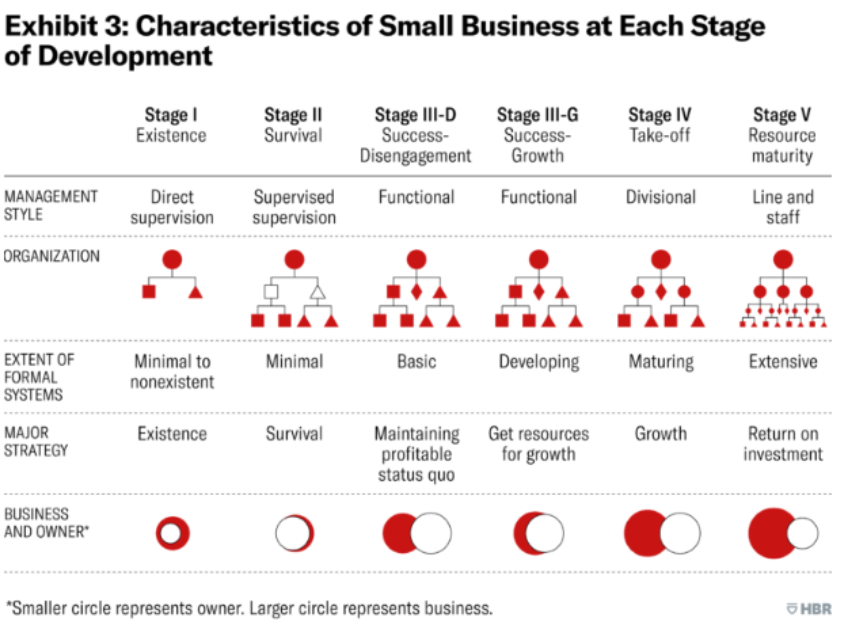
Background and Experience
As a Fractional COO with expertise in operations and management consulting, I have had the opportunity to work with various industries and clients, helping them overcome challenges and achieve their business goals. With a focus on enhancing operational efficiency, providing strategic guidance, and fostering innovation, I am dedicated to helping organizations achieve their business objectives and stay competitive in today’s dynamic market.
One of my areas of expertise is in operations management for service-based businesses. I have worked with companies in different sectors, including manufacturing, logistics, and technology, to improve their operational efficiency and effectiveness. By analyzing their processes, identifying bottlenecks, and implementing strategic changes, I have helped these organizations streamline their operations and increase productivity.
In addition to my operations background, I also have extensive experience in management consulting. I have worked with both large corporations and small businesses, providing them with strategic guidance and helping them navigate through complex business challenges. Whether it’s developing growth strategies, conducting market research, or implementing organizational changes, my clients seek to make informed decisions and drive positive results.
In the innovation ecosystem, my work was with the companies seeking innovation through building relationships with startups, incubators, and accelerators. Connecting entrepreneurs with investors, mentors, and industry expert supports their growth and market knowledge.
Stages of Company Growth
In the journey of building a successful company, there are distinct stages that every organization goes through. These stages can be categorized as existence, survival, success/disengagement, and growth. Each stage is characterized by specific goals, gaps, and the need for appropriate support and guidance. Mentors, advisors, and industry experts can provide valuable insights and help address the specific gaps that arise at each stage. By recognizing and understanding the distinct stages of company growth, entrepreneurs can navigate the path to success more effectively.
Existence Stage
The existence stage is the initial phase of a company’s growth. During this stage, the primary goal is to establish the business and make it sustainable. Startups face significant challenges in terms of securing funding, developing a viable product or service, and building a business case. The gaps that arise during this stage are typically related to limited resources to develop the product or service that the business is going to be. There is often a limited amount of market research done.
Survival Stage
Once a company has successfully established its presence, it enters the survival stage. The primary focus at this stage is to ensure the business has a stable and profitable operation. Startups face challenges such as managing cash flow, expanding customer base, and refining their product or service offering. The gaps during this stage may include the need for effective financial management, marketing strategies, and operational efficiencies.

Success/Disengagement Stage
In this stage, a company has achieved a significant level of success and stability. The goals at this stage are often centered around sustaining the success achieved and exploring potential exit strategies. Companies may face challenges related to maintaining market dominance, managing growth, and adapting to changing market dynamics. The gaps at this stage could include strategic planning, talent management, and succession planning.
Growth Stage
The growth stage is characterized by rapid expansion and scaling of the company. The goals at this stage are to capitalize on market opportunities, increase market share, and maximize profitability. Challenges can arise in areas such as managing increased complexity, maintaining organizational culture, and scaling operations. The gaps during this stage may include the need for strategic partnerships, access to capital, and strong leadership.
Importance of Structure and Systems
As a company grows, it becomes increasingly important to establish and maintain a strong structure and effective systems. These elements play a crucial role in ensuring the smooth functioning of the organization and setting a solid foundation for future growth. In this section, we will explore the significance of structure and systems, as well as the role they play in the success of a business.
Structure and systems play a vital role in the growth and success of a company. Having a clear and well-defined structure enables effective coordination, scalability, and efficient decision-making. A well-developed business plan, well-defined sales pipeline, and a capable executive team further support and optimize these structures and systems. By prioritizing and investing in establishing and maintaining structure and systems, companies can set themselves up for continued growth and success.
Having Structure as a Company Grows
Structure refers to the way an organization is organized, including its hierarchy, divisions, and departments. It provides clarity regarding roles, responsibilities, and reporting lines, which is essential for coordinating and aligning efforts towards common goals.
As a company grows, the need for structure becomes more evident. Without a clear organizational structure, confusion and inefficiency can arise, hindering productivity and decision-making. With a well-defined structure in place, employees know how decisions are made, who to report to, how to collaborate with others, and what their own responsibilities and expectations are.
Moreover, having a structure enables scalability. It allows for the effective delegation of tasks and responsibilities, facilitating the expansion of operations without causing chaos or overload. This ability to scale smoothly is crucial for growing businesses that aim to increase their market share and seize new opportunities.
To support this structure, the company starts to need systems as it grows. “Systems” in this context refers to the combination of tools, information and management that help things to get done. For example, leaders often need a reporting system to ensure that they are “in the know” about the work that is being done by their team. Employees often value a system for managing their benefits, their time and their work and for ensuring that their own development and progress is supported by the leadership team. Most importantly, systems can provide a sense of fairness among the team.
Role of Business Plan, Sales Pipeline, and Executive Team
A business plan serves as a roadmap for a company’s success and growth. It outlines the goals, strategies, and actions required to achieve them, providing a clear direction for the entire organization. A well-developed business plan not only helps in securing funding and attracting investors but also guides the decision-making process and helps in aligning efforts towards common objectives.
Another essential component of a well-structured company is a well-defined sales pipeline. A sales pipeline represents the stages through which a potential customer goes, from initial contact to final purchase. By establishing a structured sales pipeline, businesses can track and manage their sales process more effectively, ensuring that opportunities are not missed and customers are properly nurtured.
Lastly, the role of an executive team is crucial in establishing and maintaining structure and systems. The executive team provides strategic guidance, sets overall objectives, and ensures that the organization operates within its defined structure. They are responsible for making key decisions, allocating resources, and driving the company’s growth and success.
Role of Mentors and Funding
In the competitive world of business, having the right mentors and access to funding is crucial for the success and growth of a company. Both mentors and funding play significant roles at different stages of a company’s journey, helping to navigate challenges and seize opportunities. In this article, we will explore the importance of mentors and government grants, as well as funding needs and options for company growth.
As a company progresses and grows, its funding needs evolve. Startups often rely on seed funding, which can come from various sources, including angel investors, venture capital firms, or crowdfunding platforms. This initial funding helps get the business off the ground and supports early-stage development.
As the company matures, it may require additional funding for scaling operations, expanding into new markets, or launching new products and services. At this stage, options such as private equity, bank loans, or strategic partnerships become more viable. These sources of funding provide the capital necessary for growth and enable companies to seize market opportunities.
Consultants and fractional roles can help the company to position itself for funding, can introduce the company to potential funding sources, and in many cases can help to write a proposal that highlights the value of the company and its appeal for a private or government investor.
Importance of Mentors
Mentors play a crucial role in guiding entrepreneurs and business owners, especially those who are just starting out. They provide valuable insights, wisdom, and industry knowledge that can help avoid common pitfalls and make informed decisions. Mentors are experienced professionals with a wealth of knowledge gained from their own entrepreneurial journeys.
Having a mentor can help entrepreneurs gain confidence, expand their network, and open doors to new opportunities. They can offer guidance on strategy, marketing, operations, and other critical areas. A mentor can also share personal experiences and lessons learned, providing valuable perspectives and advice.
Government Grants and Support
Government grants are another valuable resource for startups and companies seeking funding. Many governments and agencies offer grants specifically designed to support and encourage entrepreneurial ventures. These grants can provide a significant financial boost and help companies overcome the initial hurdles of starting and scaling a business.
Government grants are typically non-repayable and can be used to fund research and development, product innovation, market expansion, and more. They are often targeted towards specific industries or sectors that align with government priorities, such as clean energy, technology, healthcare, or education.
Companies like our partner, Pocketed, help businesses find the right grants and tax credits. Their platform makes it easy to quickly find and successfully access government funding, taking the guesswork out of complex government programs.
Consultants and Fractional Roles
How consultants and fractional roles can help specific areas
In today’s rapidly changing business landscape, organizations are often faced with unique challenges and opportunities that require specialized knowledge and expertise. This is where consultants and fractional roles come into play. These professionals bring a wealth of experience and industry insights to help businesses tackle specific areas and achieve their goals.
One of the key benefits of consultants and fractional roles is their ability to provide targeted solutions. They focus solely on the specific areas they specialize in. They have deep experience and knowledge about their area. This allows them to provide expertise and a fresh perspective to address unique challenges and optimize business processes.
For example, a company struggling to improve its marketing strategy may enlist the help of a marketing consultant. The consultant can conduct a thorough analysis of the company’s current marketing efforts, identify areas of improvement, and develop a strategy and tailored plan to enhance brand awareness and drive customer engagement. By leveraging the consultant’s expertise, the company can make informed decisions and implement effective strategies to achieve its marketing goals. The plan has been built with the marketing team, and can be implemented by the team after the marketing consultant has left.
Another area where consultants and fractional roles prove valuable is in project management. Complex projects often require a dedicated project manager who can oversee the entire process, ensure seamless coordination among team members, and keep the project on track. Fractional project managers can be brought in to provide their expertise and guide the team towards successful project completion, without the need for a full-time project manager.
Benefits of leveraging external expertise
Engaging consultants and fractional roles offers several advantages for businesses. Here are some of the key benefits:
- Specialized knowledge: Consultants and fractional roles bring specific expertise that may not be available within the organization. This allows businesses to tap into specialized knowledge and insights to solve complex problems.
- Cost-effectiveness: Hiring full-time employees with the required skills and experience can be expensive. Engaging consultants and fractional roles allows organizations to access expertise on an as-needed basis, reducing overhead costs.
- Objectivity: External consultants bring an unbiased perspective to the table. They have no prior attachments or biases towards existing processes or systems, enabling them to provide objective recommendations and drive meaningful change.
- Flexibility: Consultants and fractional roles can be engaged for a specific project or time period, providing businesses with the flexibility to scale their resources based on current needs. This allows organizations to adapt quickly to changing market dynamics without the burden of long-term commitments.
Consultants and fractional roles play a crucial role in helping businesses overcome challenges and leverage external expertise. Their specialized knowledge, cost-effectiveness, objectivity, and flexibility make them valuable assets for organizations in various sectors. By tapping into their expertise, businesses can gain a competitive edge and achieve their strategic objectives.
Culture and Learning in Growth
The culture of a company plays a critical role in its growth and success. It encompasses the values, beliefs, and behaviors that define the organization and guide its decisions and actions. A strong company culture creates a positive work environment, fosters employee engagement, and promotes collaboration and innovation. In addition, a learning culture within an organization enables continuous improvement and adaptability, allowing it to stay ahead in a rapidly changing business landscape.
Importance of Culture in Company Growth
A positive company culture is instrumental in attracting and retaining top talent. When employees feel a strong sense of belonging and alignment with the company’s values, they are more likely to be motivated, productive, and committed to their work. This leads to higher job satisfaction and lower turnover rates, ultimately saving the company costs associated with recruitment and training. A strong company culture can also be a detractor for some employees, and in this case, it is important to be comfortable with the idea that this is the right place for some people to work, but that it won’t be the right place for others.
Moreover, a strong company culture enhances teamwork and collaboration. When individuals feel supported and valued, they are more likely to contribute their unique skills and perspectives to achieve common goals. This synergy results in increased productivity, efficiency, and creativity within the organization.
Furthermore, an inclusive and diverse culture fosters innovation. By embracing diverse perspectives and ideas, companies can better identify and solve complex problems, adapt to market changes, and seize new opportunities. This ability to innovate is critical for growth and competitive advantage in today’s dynamic business environment.
Challenges of Remote Work and Maintaining Culture in Larger Organizations
The COVID-19 pandemic has accelerated the adoption of remote work, presenting both opportunities and challenges for organizations. Much has been written about larger organizations struggling to maintain a strong company culture that becomes more challenging when employees are dispersed across different locations and time zones.
One of the key challenges is ensuring effective communication and collaboration among remote teams. To overcome this, companies need to leverage technology tools that facilitate virtual meetings, project management, and knowledge sharing. Additionally, regular check-ins, team-building activities, and virtual social events can help strengthen interpersonal connections and foster a sense of belonging among remote employees.
Another challenge is preserving the cultural values and norms that define the organization. In a remote work environment, it is crucial to clearly communicate and consistently reinforce the company’s values and expectations. This can be achieved through regular communication from leadership, virtual training sessions, and recognition of employees who exemplify the desired cultural behaviors.
In conclusion, culture and learning are essential drivers of company growth. A strong company culture attracts and retains top talent, enhances collaboration and innovation, and fosters a sense of purpose and commitment among employees. However, in the context of remote work and larger organizations, additional efforts are required to maintain and nurture culture. By leveraging technology, effective communication, and a clear focus on values, companies can overcome these challenges and reap the benefits of a strong culture in driving growth and success.
Differences in Small and Large Companies
When it comes to businesses, size matters. Small and large companies have their own unique set of characteristics, cultures, and management approaches. Understanding these differences is crucial for professionals working in both types of organizations. In this blog post, we will explore the contrasting cultures and management approaches found in small and large companies, as well as discuss the challenges of adapting to changes in company size.
Contrasting Cultures
The culture of a company is shaped by its values, beliefs, and practices. In small companies, the culture tends to be more informal, collaborative, and flexible. Employees often wear multiple hats, and decision-making processes are typically faster and more agile. There is often a greater sense of camaraderie and a strong team spirit, with everyone working closely together towards shared goals.
On the other hand, large companies often have a more formalized and hierarchical culture. There are well-defined structures and processes in place, and roles and responsibilities are clearly defined. Decision-making can be slower due to the need for approvals from multiple layers of management, and innovation can be stifled by existing structures. While large companies may have more resources and access to specialized skills, the size and complexity can sometimes hinder agility.
It is important for professionals to understand and be comfortable with the culture of the company they work for. In a small company, being proactive, adaptable, and willing to take on new challenges can help individuals thrive. In a large company, understanding and navigating the formal structures and building relationships with key stakeholders are essential for success.
Management Approaches
The management approach in small and large companies also differs significantly. In small companies, management is often closer to the frontlines of operations and has a more direct and hands-on approach. Managers in small companies often have a deep understanding of their employees’ tasks and responsibilities, and they work closely with their teams to provide guidance and support. Adding a management layer to support a larger team can feel like losing an understanding of the work that is being done and like losing a direct line to the leader.
In contrast, large companies have a more layered management structure. Managers may be responsible for overseeing larger teams or departments, and their focus might be more on strategic planning and coordination. There may be more delegation and reliance on middle managers to handle day-to-day operations, which means that those managers need to be skilled in people management, delegation and communication.
Furthermore, in small companies, management decisions can be made quickly, as there are fewer layers of hierarchy. On the other hand, large companies may have more complex decision-making processes, involving approvals from multiple levels of management.
Adapting to Changes in Company Size
As companies grow or downsize, employees often need to adapt to changes in company size. In small companies, as the organization expands, new employees are added to meet the growing demands. This can create challenges in maintaining the original culture and close-knit team dynamics. It may also require implementing new systems and processes to accommodate the increased workload and ensure efficient operations. It is challenging for people to be open to this degree of change at the same time as they are managing significant workloads.

On the other hand, in larger companies, downsizing can present challenges such as layoffs and reorganizations. Employees may need to take on additional responsibilities or adapt to new roles within the company. In this case, it is crucial for the company to support its people because individuals are being asked to be flexible and open to change during these transitional periods, and this unstable environment can be very uncomfortable for them.
Final Thoughts
Small and large companies have distinct cultures and management approaches. Professionals should understand the nuances of working in different size organizations to thrive in their respective environments. Adapting to changes in company size requires flexibility, open-mindedness, and the ability to navigate through the unique challenges presented by each circumstance.
Ready to review your company growth strategy?
Collaborate with Michele, leveraging her expertise and insights, to develop a comprehensive and tailored company growth strategy that propels your business towards sustainable success.
On Cansulta, we believe no business leader should have to face any challenge alone. Our online platform lets you find and collaborate with pre-vetted consultants at a fraction of the cost of traditional firms.
Not sure what expertise you need?
Our Concierge is happy to discuss your needs and match you with the best-suited consultant. On Cansulta, you can browse consultants by expertise and connect with vetted professionals in Intro sessions for FREE.
